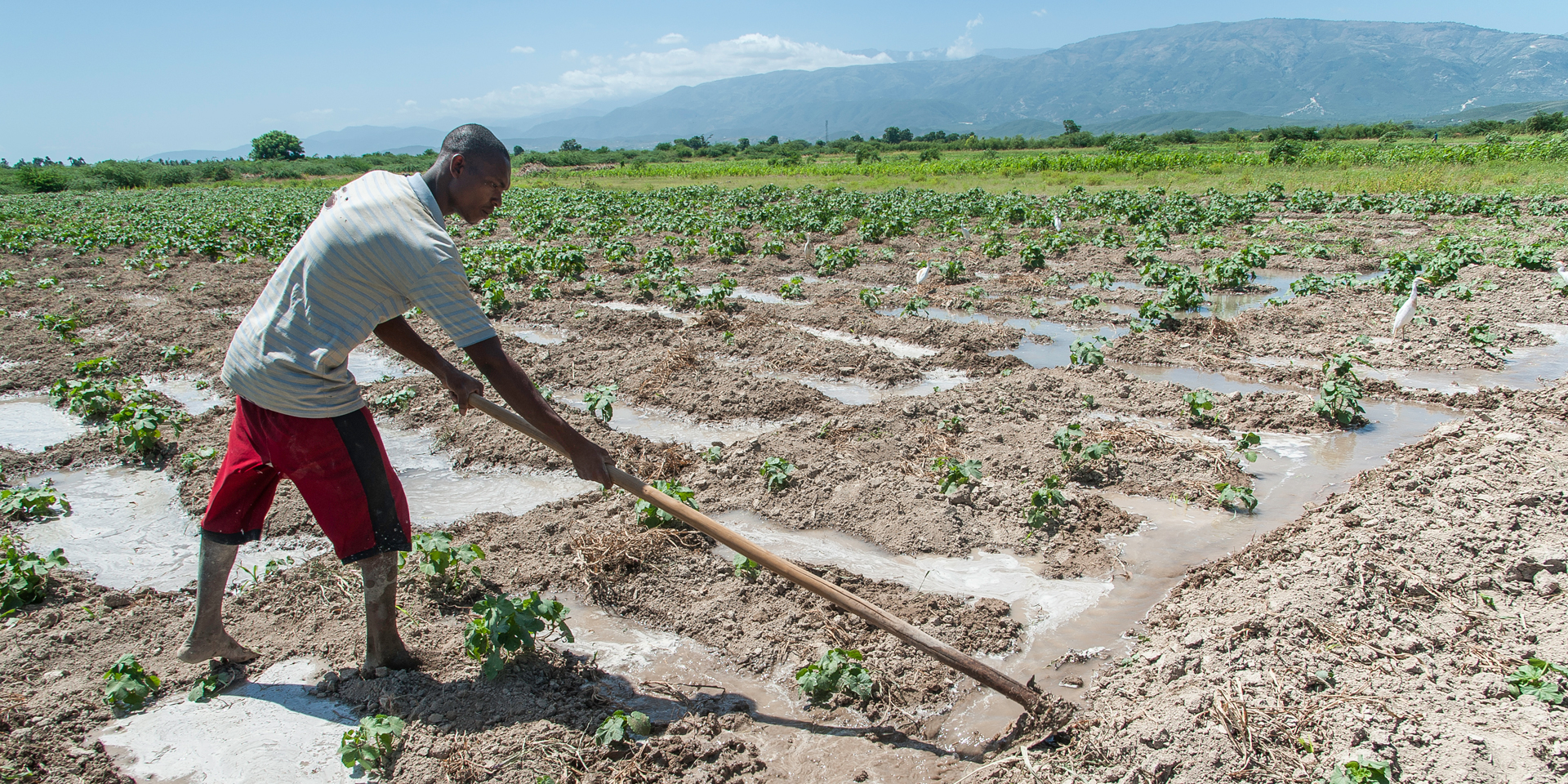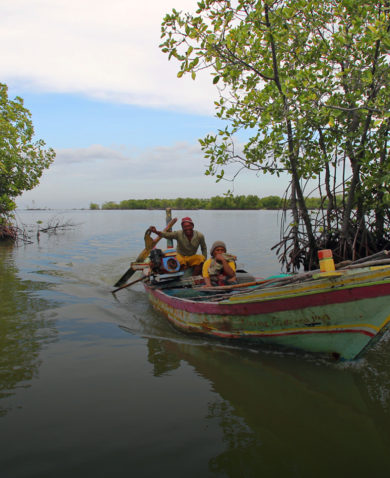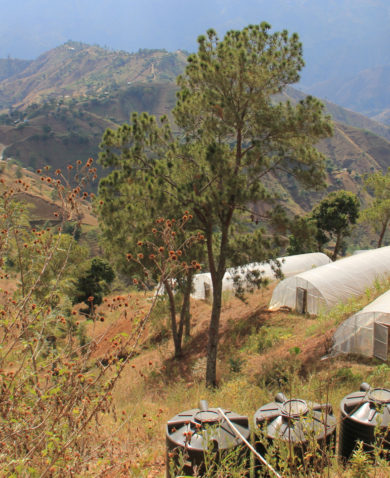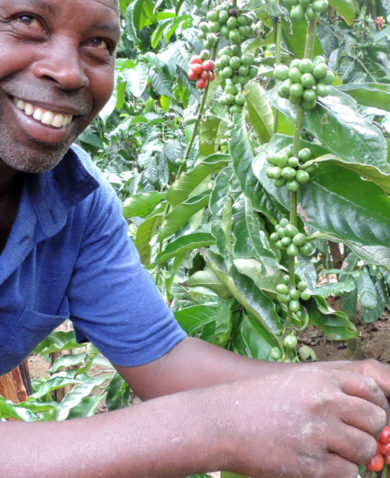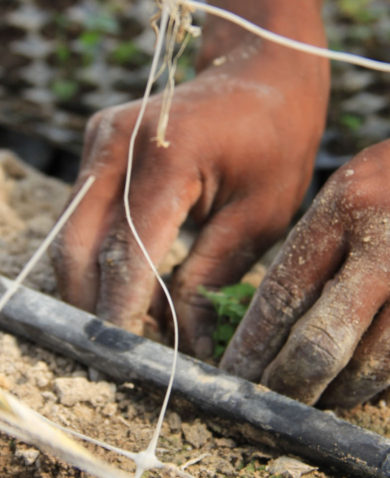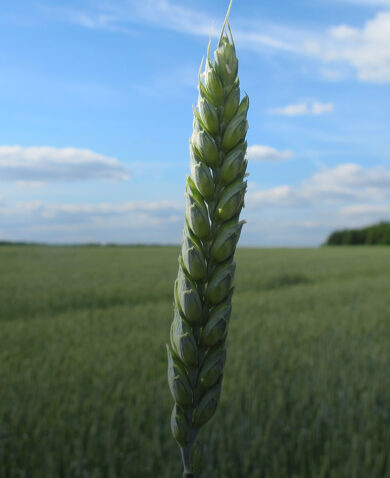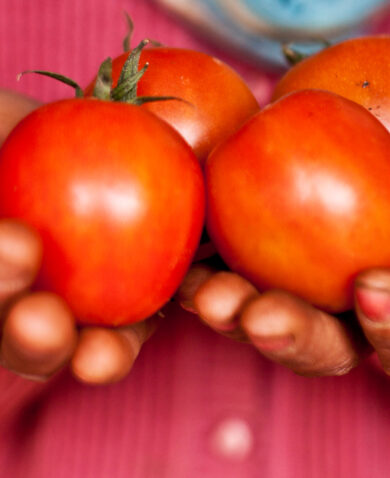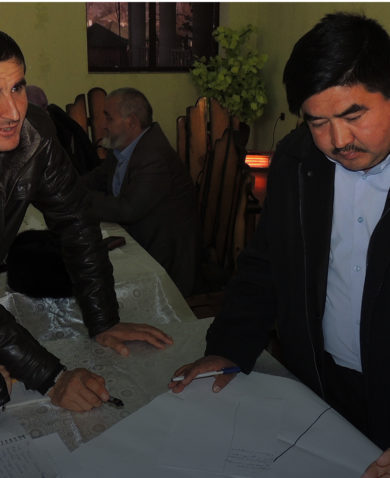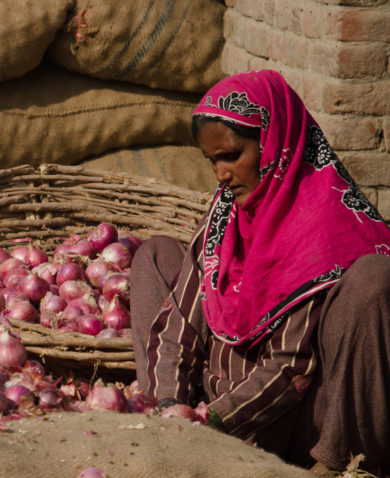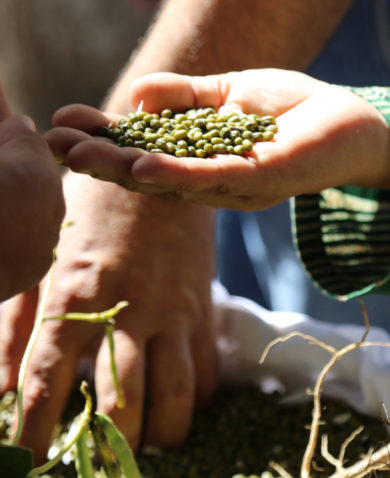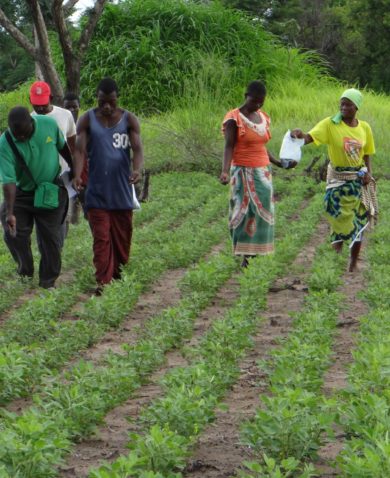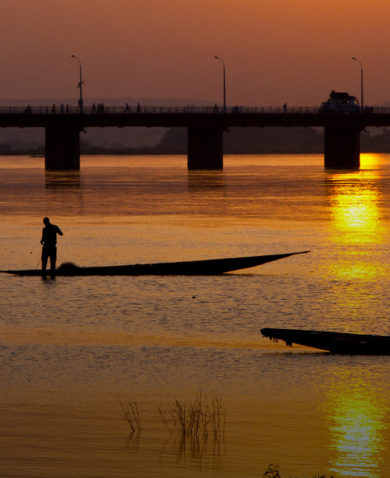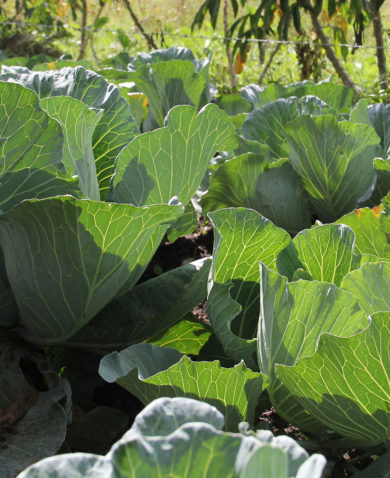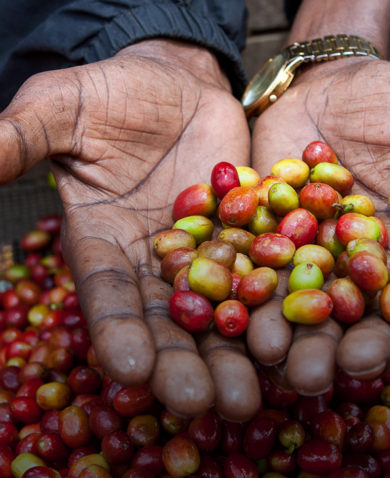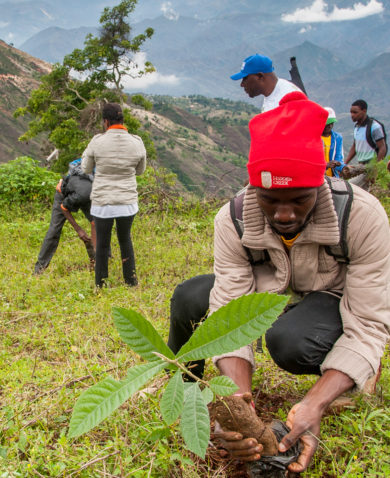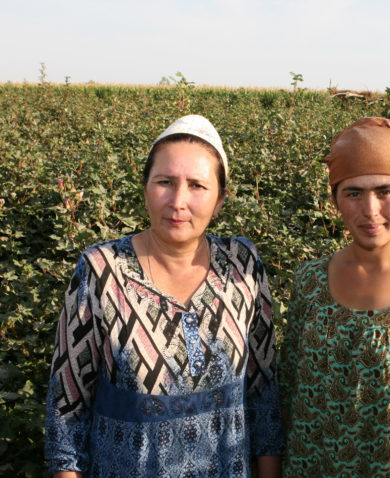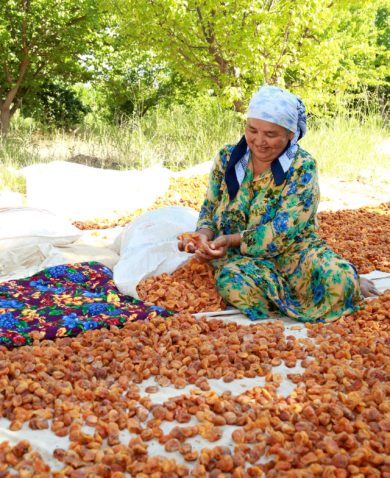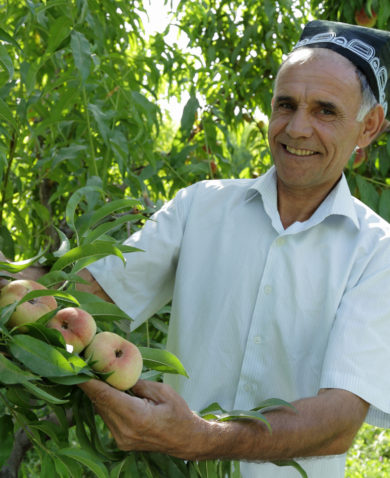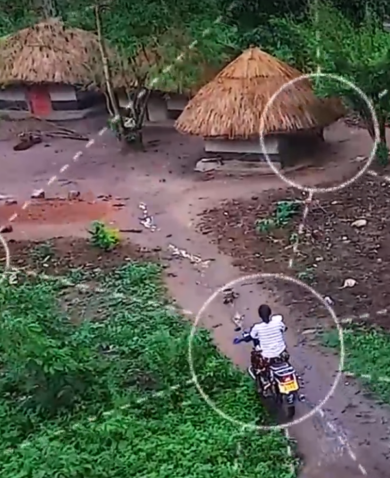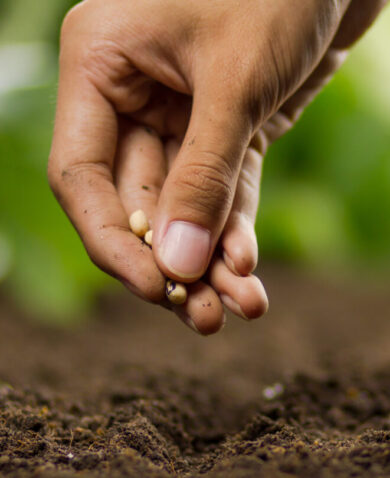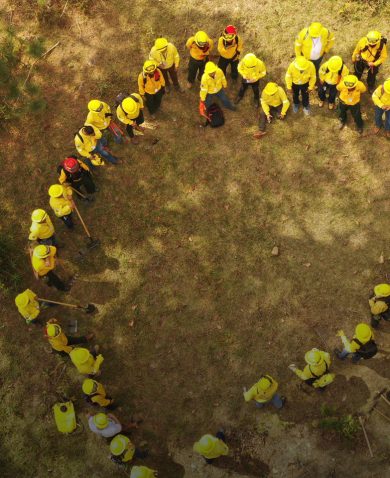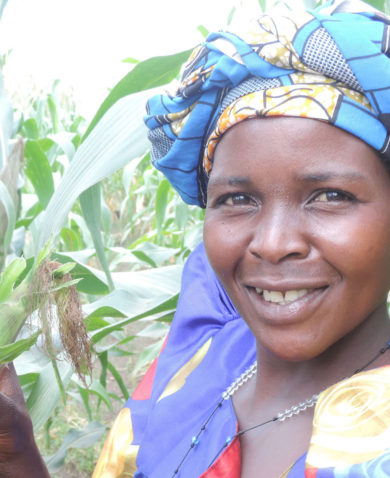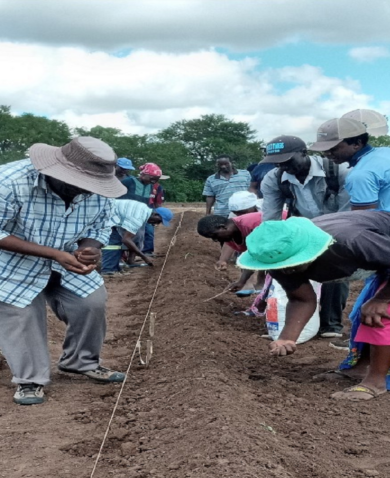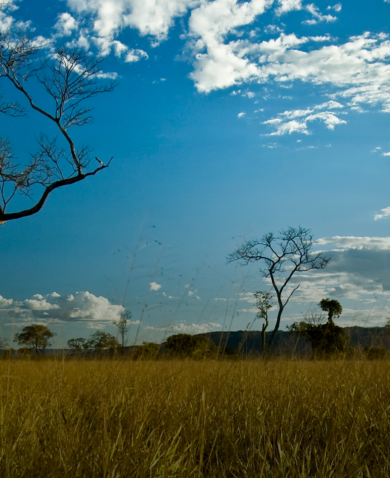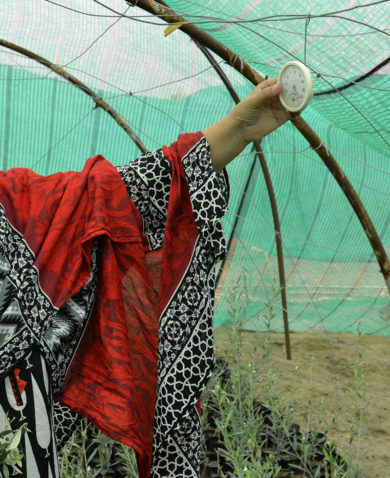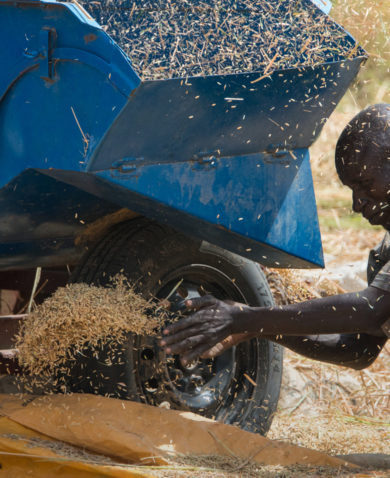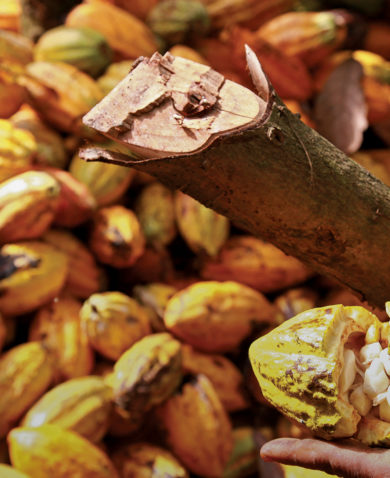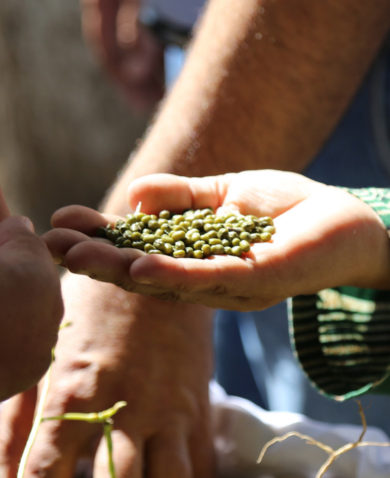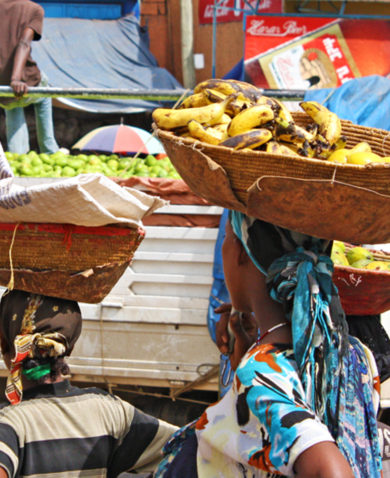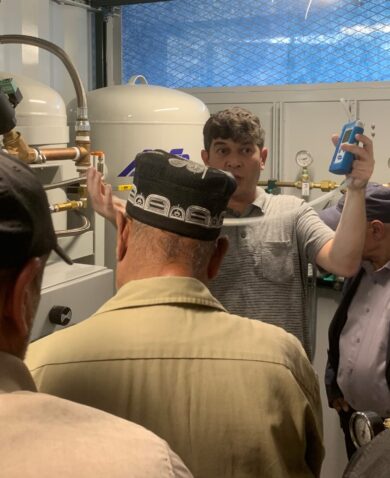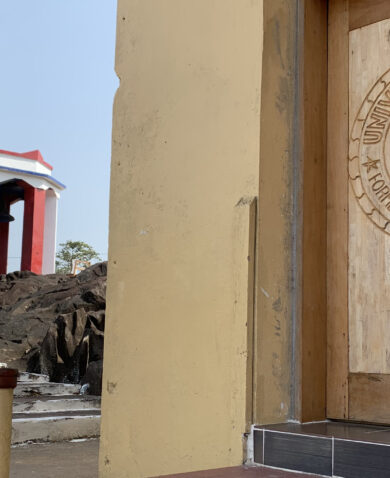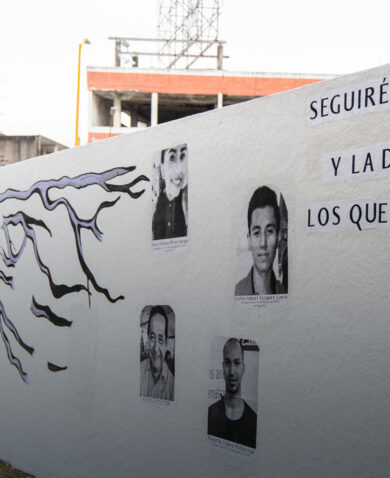Beginning in April 2016, project staff partnered with ODVA to clean the Canal Artibonite Sud, one of the major primary irrigation canals in the Artibonite Valley. The canal has the potential to irrigate 7,000 of the 9,000 hectares of agricultural land in the Bocozèle area. However, the lack of regular maintenance over the past several years has left areas of the canal clogged with sediment and vegetation, causing floods and drought in different places.
From May to August 2016, CLP and ODVA worked together to address this issue. ODVA staff members and workers from two local water-user associations (the Water-User Association of the South Artibonite Canal and the Water-User Association of the North Artibonite Canal, fifth section) cleaned much of the canal, removing sediment and trash buildup. They also used heavy equipment to help speed the process along.
In addition to the short-term work of cleaning the canal, ODVA worked closely with the two water-user associations to improve how they collected water-user fees and conducted regular canal maintenance. As a result of this assistance, these water associations can now provide high-quality inputs — including TCS-10 rice seeds, fertilizers, and pesticides — to sell to local agro-supply stores.
Farmers in the Artibonite Valley are also learning new growing techniques. With support from the project and the University of Cornell, local beneficiaries are adopting best practices for doubling their yields while reducing the amount of seeds and water they use. Notably, 84 master farmers were certified and are now actively teaching others in their community.
ODVA itself is improving its internal processes, including how it does reporting, invoicing, and community outreach. Through these new approaches, ODVA staff members are applying environmentally sustainable methods for sediment removal and reuse.

